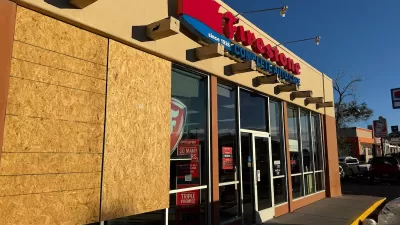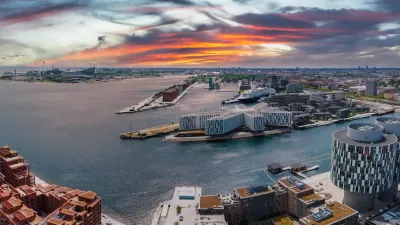A unique blend of religious beliefs, state policies and capitalist interests are reshaping Mecca for the worse, critics argue, at the expense of its most prized cultural assets.
In Mecca, the spiritual capital of the Islamic world, a decade of unbridled demolition of historic sites, including the house of the prophet's wife, Khadijah, has been matched only by the construction of new buildings of gargantuan proportions. Abraj al-Bait, the second tallest building in the world, now stands in the place of a late 18th century citadel. This $15 billion project, "which rises like Big Ben on steroids," is just the first of many projects fueled by petrodollars now under way in Mecca, reports Oliver Wainwright, and emblematic of the destructive building craze that Mecca has seen in the last 10 years.
Saudi Arabian officials have no qualms about the continued demolition of historic sites, as they push forward with the building spree, asserts Wainwright. "No one has the right to interfere in what comes under the state's authority," said a Saudi Islamic affairs minister in 2002 when rebuffing international outcry over the destruction of the 18th century citadel, adding "[t]his development is in the interest of all Muslims all over the world."
Saudi Arabia's extreme version of eminent domain and irreverence for historic preservation efforts is rooted in "state-endorsed wahhabism, the hardline interpretation of Islam that perceives historical sites as encouraging sinful idolatry. So anything that relates to the prophet could be in the bulldozer's sights," adds Wainwright.
FULL STORY: Mecca's mega architecture casts shadow over hajj

Alabama: Trump Terminates Settlements for Black Communities Harmed By Raw Sewage
Trump deemed the landmark civil rights agreement “illegal DEI and environmental justice policy.”

Planetizen Federal Action Tracker
A weekly monitor of how Trump’s orders and actions are impacting planners and planning in America.

Why Should We Subsidize Public Transportation?
Many public transit agencies face financial stress due to rising costs, declining fare revenue, and declining subsidies. Transit advocates must provide a strong business case for increasing public transit funding.

Understanding Road Diets
An explainer from Momentum highlights the advantages of reducing vehicle lanes in favor of more bike, transit, and pedestrian infrastructure.

New California Law Regulates Warehouse Pollution
A new law tightens building and emissions regulations for large distribution warehouses to mitigate air pollution and traffic in surrounding communities.

Phoenix Announces Opening Date for Light Rail Extension
The South Central extension will connect South Phoenix to downtown and other major hubs starting on June 7.
Urban Design for Planners 1: Software Tools
This six-course series explores essential urban design concepts using open source software and equips planners with the tools they need to participate fully in the urban design process.
Planning for Universal Design
Learn the tools for implementing Universal Design in planning regulations.
Caltrans
Smith Gee Studio
Institute for Housing and Urban Development Studies (IHS)
City of Grandview
Harvard GSD Executive Education
Toledo-Lucas County Plan Commissions
Salt Lake City
NYU Wagner Graduate School of Public Service




























